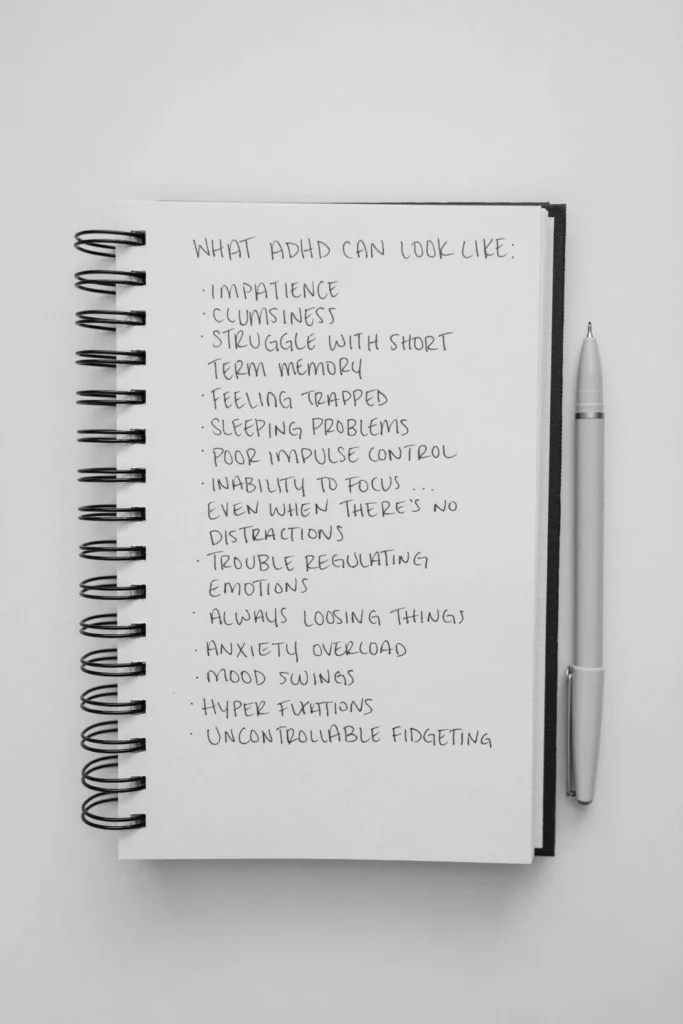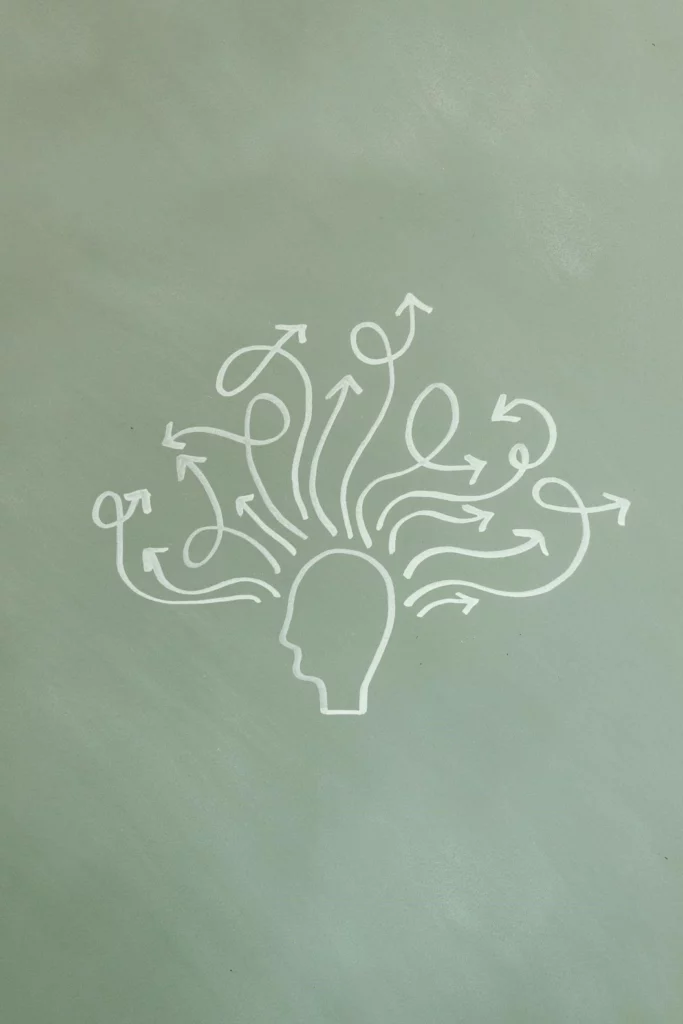Attention Deficit Hyperactivity Disorder (ADHD) is a condition that affects millions of people all over the world, which can change the way they navigate their day-to-day life . While commonly linked to challenges such as hyperactivity or inattention, it can also have an emotional impact, which comes as a reduced ability in emotion regulation.
With ADHD, any stressor can trigger deep emotions like fear, frustration and anger—even those other people may find relatively minor. But what does this mean for someone living with ADHD? And how do you learn to manage these intense feelings?
To begin our exploration into this complicated topic, let’s start by taking an overview of what exactly is meant by “emotional dysregulation” and how this relates to the symptoms of ADHD
Common Characteristics of Emotional Dysregulation
Not knowing how you’re feeling
One of the prominent characteristics of emotional dysregulation in individuals with ADHD is the difficulty in accurately identifying and labeling their emotions. It’s like being lost in a sea of feelings without a compass. Everyday emotional states such as frustration, irritation, or even excitement can become blurred and hard to distinguish. This may lead to increased stress and frustration as individuals navigate their emotional landscape. To address this challenge, mindfulness techniques and emotional awareness exercises can be beneficial. By encouraging individuals with ADHD to take a moment to pause and identify their feelings without judgment, they can gradually develop a better understanding of their emotional experiences.Not understanding what others are feeling
The struggle to interpret and understand the emotions of others is another aspect of emotional dysregulation experienced by those with ADHD. Difficulty in reading social cues and body language can lead to misinterpretations and miscommunications, affecting their relationships and interactions with others. This lack of emotional insight may also contribute to social challenges and feelings of isolation. To improve this aspect of emotional dysregulation, social skills training can be helpful. Engaging in role-playing exercises or seeking guidance from a therapist can provide valuable tools to recognize and interpret emotions in others more accurately.Simultaneously feeling a rush of emotions
Imagine experiencing an avalanche of emotions all at once—joy, frustration, anger, and anxiety, all jumbled together. For individuals with ADHD, this emotional overwhelm can be a frequent occurrence. The flood of intense feelings can be incredibly distressing, making it hard to respond appropriately to different situations. In coping with this aspect of emotional dysregulation, the implementation of strategies to manage intense emotions becomes crucial. Techniques such as deep breathing, grounding exercises, or taking short breaks to regain composure can help in diffusing the emotional storm and restoring a sense of balance.The Daily Life Of Someone With ADHD

Living with ADHD and emotional dysregulation can present unique challenges in a person’s daily life. The struggle to manage emotions effectively can significantly impact various aspects of their routine, relationships, and overall well-being.
Intense Mood Swings
For individuals with ADHD and emotional dysregulation, navigating through intense mood swings becomes a regular part of their daily life. They may experience sudden shifts in emotions, swinging from moments of joy and excitement to feelings of frustration, anger, or sadness without apparent triggers.
These mood swings can be overwhelming and disruptive, making it difficult to maintain focus and productivity throughout the day. Coping with such emotional volatility may require a combination of therapy, medication, and mindfulness techniques to create a more stable emotional baseline.
Negative Outbursts
The emotional dysregulation sometimes experienced with ADHD can result in occasional difficulty in managing emotional responses These outbursts can occur in response to seemingly insignificant stressors, and their intensity can surprise not only others but also the individuals themselves. Such emotional explosions may lead to conflicts and strained relationships with family, friends, and colleagues.
Implementing anger management strategies, like taking a step back before reacting and learning healthier coping mechanisms, can aid in curbing these negative outbursts and promoting more constructive emotional expression.
Struggling Professional Life
The challenges of emotional dysregulation in the workplace can be particularly pronounced. Individuals with ADHD may face unique challenges in maintaining harmonious relationships with coworkers due to emotional difficulties. Addressing these issues can contribute to a positive work environment.
Seeking support from understanding colleagues or supervisors and implementing stress management techniques can be crucial in maintaining a successful professional life while managing emotional dysregulation.
Problematic Relationships
Personal relationships can be significantly affected by the emotional dysregulation that can accompany ADHD. Managing intense mood swings can sometimes be challenging, impacting interactions with others. As a result, some individuals with ADHD may inadvertently push people away, feeling isolated and frustrated by their inability to effectively regulate emotions.
Seeking couples or family therapy can help improve communication and provide tools for both parties to navigate the challenges that emotional dysregulation presents.
Increased Risk of Mental Health Issues
Emotional dysregulation can also be associated with a higher risk of mental health concerns for some individuals with ADHD. Seeking comprehensive treatment can support overall well-being.
Increased Risk of Diseases
Chronic stress and intense emotional experiences may impact physical health in some individuals with ADHD. Engaging in regular exercise, adopting stress-reducing techniques, and maintaining a balanced lifestyle can be beneficial in mitigating these risks and promoting better physical and emotional health.
Why is emotional dysregulation a common manifestation of ADHD?
ADHD, characterized by stress, hyperactivity, and low impulse control, fosters an environment where emotional dysregulation thrives. Neurologically, the condition affects the prefrontal cortex responsible for emotional regulation, leading to difficulties in inhibiting emotional responses and impulsive reactions. The dysregulated reward system heightens emotional responses, intensifying reactions to stimuli.
The constant stress and sensory overload experienced by individuals with ADHD contribute to emotional overwhelm, making it harder to remain calm and composed. Moreover, the impulsivity characteristic of ADHD impacts emotional expression, often resulting in outbursts that may seem excessive. The heightened rejection sensitivity adds to emotional distress, and co-occurring conditions interact with ADHD symptoms, further intensifying emotional responses.
This complex interplay of factors underscores the common manifestation of emotional dysregulation in ADHD, highlighting the importance of tailored interventions to support individuals in navigating their emotions effectively and promoting overall well-being.
Life with ADHD can be pretty hard, but you don’t have to deal with it alone. We offer online therapy for adults with ADHD, so you can learn to develop skills that help you manage your symptoms in the long run.
Developing Emotional Regulation - Key Steps To Focus On



